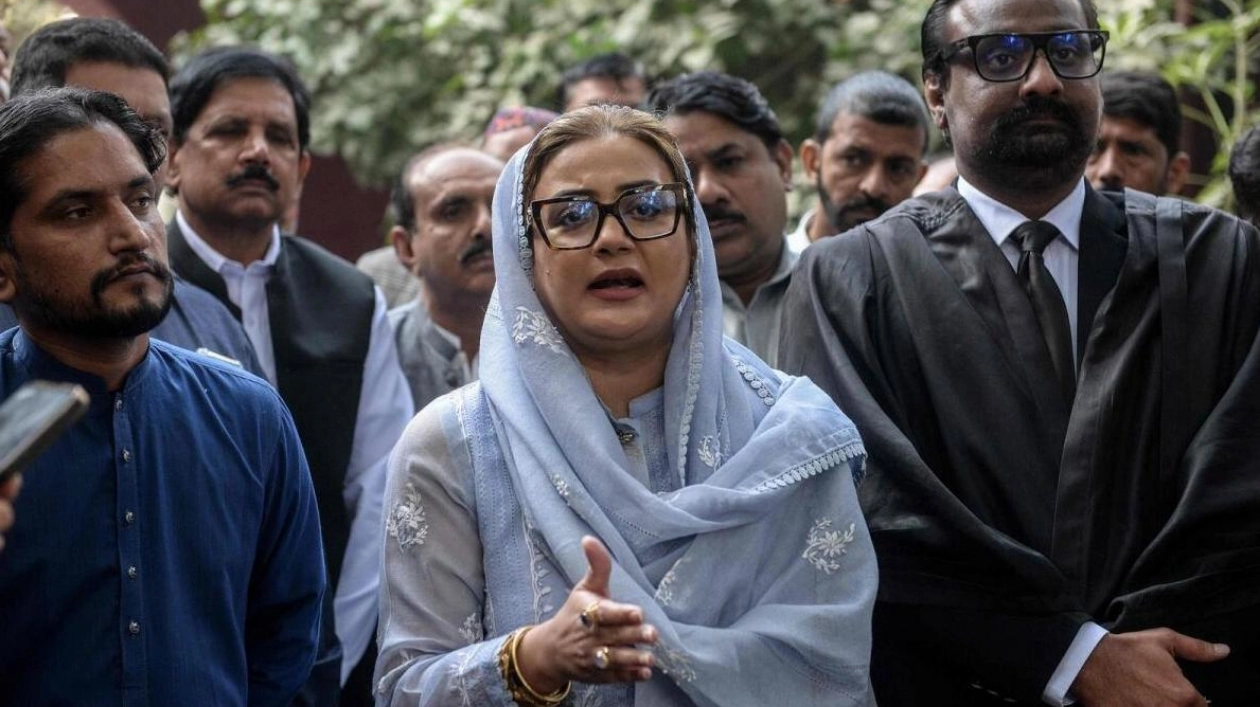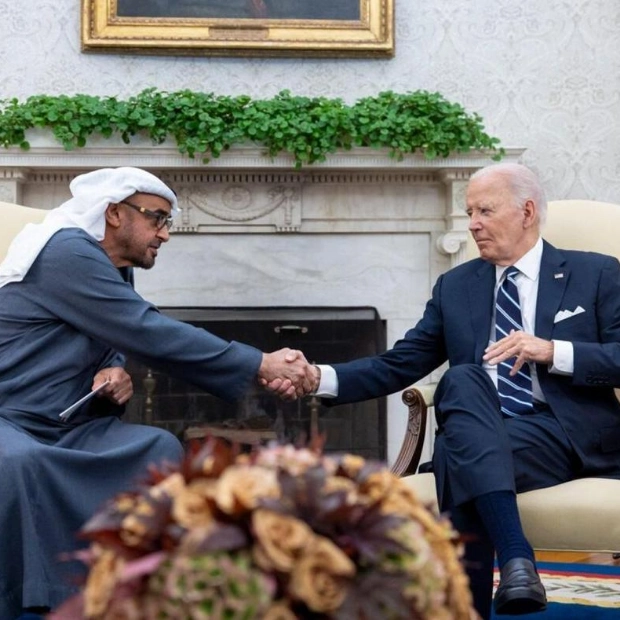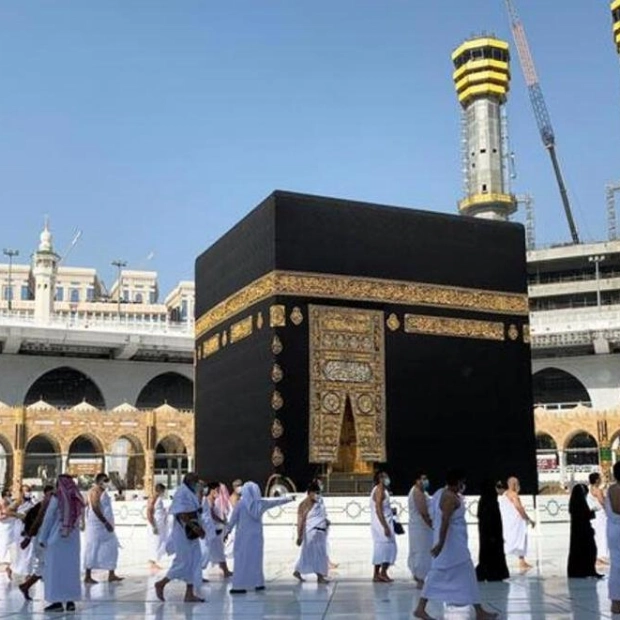In this photograph taken on November 20, 2024, Azma Bukhari (C), the Information Minister of Pakistan's Punjab province, addresses the media following her deepfake video case hearing in Lahore. AFP file
Pakistani politician Azma Bukhari is grappling with a fabricated image of herself — a sexually explicit deepfake video intended to undermine her position as one of the nation's few female leaders. 'I was devastated when I found out,' said the 48-year-old Bukhari, who serves as the information minister in Pakistan's most populous province. Deepfakes, which manipulate real audio, photos, or videos to create false representations, are becoming more convincing and easier to produce as artificial intelligence (AI) becomes more prevalent. In Pakistan, where media literacy is low, these deepfakes are being used to tarnish the reputations of women in public life with sexual insinuations that are deeply damaging in a conservative society. Bukhari, who frequently appears on TV, recalls being silent for days after seeing her face superimposed onto the body of an Indian actress in a video that quickly went viral on social media. 'It was extremely difficult, I was depressed,' she told AFP at her home in Lahore. 'My daughter hugged me and said: 'Mama, you have to fight this.'
Initially recoiling, Bukhari is now pursuing legal action at Lahore's High Court to hold those responsible for spreading the deepfake accountable. 'When I go to court, I have to keep reminding people that I have a fake video,' she said. In Pakistan, a country of 240 million people, internet usage has surged recently due to affordable 4G mobile internet. According to monitoring site DataReportal, around 110 million Pakistanis were online in January, 24 million more than at the start of 2023. In this year's election, deepfakes played a central role in the digital discourse. Former Prime Minister Imran Khan was imprisoned, but his team used an AI tool to generate speeches in his voice, allowing him to campaign from behind bars. While men in politics are usually criticized for corruption, ideology, and status, deepfakes have a particularly sinister aspect when used against women.
'When they are accused, it almost always revolves around their sex lives, personal lives, whether they are good mothers or wives,' said US-based AI expert Henry Ajder. 'For that, deepfakes are a very harmful weapon,' he told AFP. In patriarchal Pakistan, the stakes are high. Women's status is often tied to their 'honour,' generally defined as modesty and chastity. Hundreds are killed each year, often by their own families, for allegedly tarnishing this honour. Bukhari describes the video targeting her as 'pornographic.' However, in a country where premarital sex and cohabitation are punishable offenses, deepfakes can severely damage reputations by suggesting improper social interactions with men.
In October, AFP debunked a deepfake video of regional lawmaker Meena Majeed showing her hugging the male chief minister of Balochistan province. A social media caption read: 'Shamelessness has no limits. This is an insult to Baloch culture.' Bukhari says photos of her with her husband and son have also been manipulated to imply she appeared in public with boyfriends outside her marriage. Edited videos frequently circulate of Punjab Chief Minister Maryam Nawaz Sharif, Bukhari's boss, showing her dancing with opposition leaders. Once targeted by deepfakes like these, women's 'image is seen as immoral, and the honour of the entire family is lost,' said Sadaf Khan of Pakistani non-profit Media Matters for Democracy. 'This can put them in danger,' she told AFP.
Deepfakes are now widespread worldwide, but Pakistan does have legislation to combat their use in disinformation campaigns. In 2016, a law was passed by Bukhari's party 'to prevent online crimes' with provisions against sharing photos or videos without consent 'in a manner that harms a person.' Bukhari believes it needs to be strengthened and supported by investigators. 'The capacity building of our cybercrime unit is very, very important,' she said. However, digital rights activists have criticized the government for using such broad legislation to suppress dissent. Authorities have previously blocked YouTube and TikTok, and a ban on X — formerly Twitter — has been in place since after February elections when allegations of vote tampering spread on the site. Pakistan-based digital rights activist Nighat Dad said blocking the sites serves only as 'a quick solution for the government.' 'It's violating other fundamental rights, which are connected to your freedom of expression, and access to information,' she told AFP.
Source link: https://www.khaleejtimes.com






